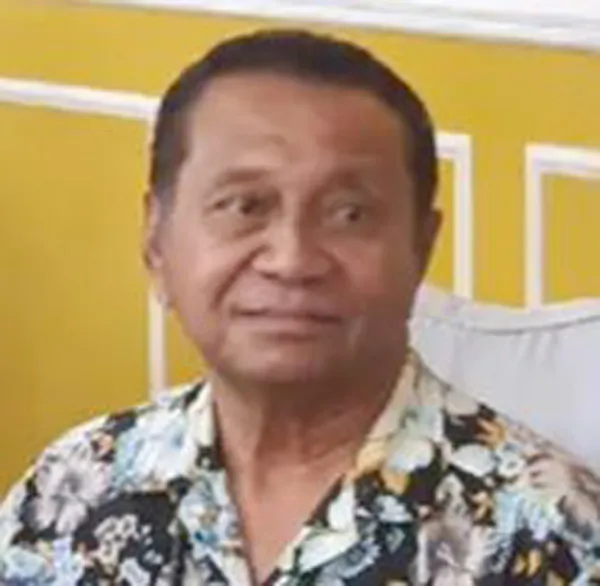The 12th Aimeliik State Legislature passed a resolution requesting Aimeliik Governor Browny Simer to investigate allegations of misconduct in office made against Aimeliik State Public Land Authority (AIMSPLA) Chairman Clarence Sriderio Rengulbai.
Chairman Clarence Sriderio Rengulbai allegedly entered into a lease agreement with a foreign businessman not authorised by the Aimeliik State Public Land Authority Board of Trustees.
Governor Simer declined the investigation, saying that through its regulations, the Aimeliik State Public Land Authority has the power to create its own committee to investigate the allegations against its members. In his letter to Speaker Lucio Obakerbau of the 12th Aimeliik State Legislature, he said he “urged” AIMSPLA to exercise its mandate and look into the allegations.
The allegation claimed that Rengulbai leased a 42,130 sq. meter lot in Ngerderar, Aimeliik, to a Chinese national, Bo Pan, for US$126,350.00 without the approval of Aimeliik State Public Land Authority and received the money personally using Aimeliik State Public Land Authority letterhead to issue a receipt to Mr. Bo Pan. Aimeliik State office has no record of payment received from Rengulbai.
An investigation by Island Times revealed a lease contract between Chairman Sriderio Rengulbai, executed on behalf of Aimeliik State Public Land Authority, and Bo Pan, a citizen of Shenzhen, China, for a Cadastral Lot No. 068 M01, consisting of 42,130 square meters in Ngerderar, Aimeliik for a term of 99 years for a one-time payment of USD$126,350.
Aimeliik State Land Authority holds the certificate of title of the land leased.
The lease contract was executed on September 23, 2022, and recorded at the Palau Supreme Court. The record also showed a receipt issued to Bo Pan on the Aimeliik State Public Land Authority letterhead for the US$126,350 payment Clarence Sriderio Rengulbai received on the 23rd of September, 2022. The receipt was notarized at the Palau Supreme Court.
Not much is known about Bo Pan’s status in Palau, but he reportedly leased the land to build apartments and condominiums.
A month before Chairman Rengulbai allegedly leased out the land, he reported during a Board meeting that the land has been transferred to Trei Clan and that they had leased it out. But the AIMSPLA legal counsel contradicted Chairman Rengulbai’s statement and said that the property was still in the process of being transferred to the Trei clan.
AIMSPLA Managing Director Junior Ueki, in an interview with Island Times, said that Aimeliik State Public Land Authority did not approve a lease to Bo Pan and that the specific lot in these documents is being transferred to Trei Clan in compliance with a Memorandum of Understanding between Aimeliik State Public Land Authority, Aimeliik State Government and Trei Clan.
Aimeliik State Government records showed no business lease agreement with Bo Pan or record of any payment received in the amount of US$126,350.
The court record shows that the following month after Rengulbai executed a business lease agreement with Bo Pan, he signed a Warranty Deed as Chairman of Aimeliik State Public Land Authority, transferring the same lot, Cadastral Lot No. 068 M 01 to Trei Clan, guaranteeing that the land was “free from all encumbrances.”
This publication attempted to reach Bo Pan but was informed that he was currently in China.
Clarence Sriderio Rengulbai spoke with this editor on the phone and said that he had spoken to Geggie Asanuma, one of the claimants to the Trei clan, and “everything is all good.” When asked for a sitdown interview about the alleged lease contract, Rengulbai declined, saying there was no issue. “Ng mla moungil, a kmla mengedecheduch ra Geggie.” (it is all good. I’ve talked to Geggie.) The statement did not explain the allegations and the lease documents.
The Aimeliik 12th Legislature sent a copy of its Resolution No. 12-27 to the Office of the Special Prosecutor.
(This investigative article is made possible with the support of PINA’s Pacific Anti-Corruption Journalists Network (PACJN) project and the United Nations Office for Drugs and Crime UNODC).
